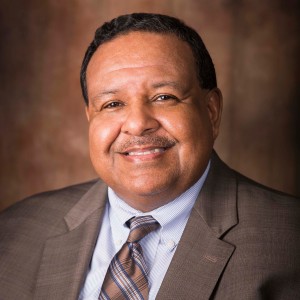Lipscomb expert joins national scholars to advise CCCU
Lipscomb’s top diversity leader provides insight to national Christian higher education association.
Janel Shoun-Smith | 615.966.7078 |

In June, the Council on Christian Colleges and Universities (CCCU) tapped Lipscomb University’s senior diversity officer to join a select group of 20 university scholars and administrators from across the country working to define the most important questions facing church-related higher education, including questions of diversity and inclusion, as they develop over the next decade.
The CCCU is a leading national voice in Christian higher education with more than 180 Christian institutions around the world, including Lipscomb, as members. The CCCU’s mission is to advance the cause of Christ-centered higher education and to help its institutions transform lives by faithfully relating scholarship and service to Biblical truth.

Dr. William Turner, Special Counsel to the President
Lipscomb’s William Turner, distinguished professor of leadership and public policy and special counsel to the President, joined the scholars from a range of church-related institutions and organizations as well as those who work in the field to “assess the most pressing questions and concerns in this landscape in order to prompt new initiatives to address them,” said Shirley Hoogstra, J.D., CCCU president.
The two-day discussion and consultation was intended to lay the groundwork for a substantial grant application from CCCU to the Lilly Endowment Inc., an organization that has been part of widespread philanthropic efforts over the past decades to address the driving questions facing church-related higher learning.
“As leaders of academic institutions address urgent, pressing, long-term and immediate challenges and opportunities, CCCU and the Lilly Fellows want to provide a space to think deeply and act responsibly in accord with our most fundamental theological and institutional ideals and practices,” said Hoogstra.

Shirley Hoogstra
“And while we know that the pandemic-related events of the last six months, and especially the social unrest of the last eight weeks, are on our minds, we want, at this time, to focus our attention on their impact on long-term trends; even so, we should certainly be sensitive to the way these exigencies highlight deeper developments,” she said.
Turner “was recommended (to participate in the group) for his particular insight, expertise, and experience across multiple platforms of higher education,” said Hoogstra.
Turner, whose position places him on Lipscomb's executive leadership team, came to the university from Vanderbilt University, where he taught health policy classes as a professor and endowed chair and developed a research program called the HOPE Center, a working group that does research on hopefulness in low-income and minority communities and determines the best ways to programmatically enhance hopefulness in similar communities.
During the discussions in June, a significant amount of time was spent exploring issues of equity, diversity and inclusion in Christian higher education, said Turner.
“Namely, we must understand why our institutions consistently fail certain students—particularly students of color and of other minority status groups,” said Turner.
“Moreover, there is great concern about developing a new and better understanding of the ways in which religion and culture are undergoing dynamic shifts with interesting implications—a new negotiation of the way religion is situated in the larger culture and a keener awareness of the ways in which race and religion in America interact. Undergraduates entering faith-based campuses embody these new tensions,” he said.
Other universities represented on the panel included the University of Oxford, Azusa Pacific University, Baylor University, Biola University, Boston College, Calvin College, Corpus Christi College, Dordt University, Duke University, Indiana Wesleyan University, Messiah College, the University of Notre Dame, the University of Dayton and Valparaiso University.
The Lilly Foundation Inc. is one of the world’s largest private philanthropic foundations and among the largest endowments in the United States. Community development, education and religion are the three primary causes the endowment was established to support.
The Lilly Endowment has previously funded several initiatives at Lipscomb including The College of Bible & Ministry’s ENGAGE summer program for high school students and a project to gather faculty from five Nashville universities, three predominantly white and two predominantly black, to discuss issues of racial equity.
A follow up report and action points will follow later in the Fall of 2020. The meetings were conducted using Zoom as our platform, and the sessions were not recorded for the sake of honest open dialogue.